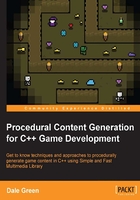
Choosing an IDE
Before we do anything, you're going to need a solid C++ IDE. You may already have one that you prefer to use. If you do have one, that's fine. But if you don't, here's a quick summary of two of my favorites.
Microsoft Visual Studio
Microsoft Visual Studio is an industry-standard IDE from Microsoft. It supports a wide range of languages, and provides a large variety of testing and compatibility tools. It's also tied in with a number of Microsoft services, making it the top choice for development on Windows PCs. The pros and cons to using Microsoft Visual Studio are as follows:
Pros:
- It has a number of free versions available
- A wide range of languages are supported by Microsoft Visual Studio
- It is widely supported by Microsoft
- It has a highly customizable environment with dockable windows
- It has intelligent code completion features
- It is integrated with a number of Microsoft features
Cons:
- Its full version is very expensive
- Its free version is limited
- Works only on Windows PC
Tip
Microsoft Visual Studio and a wide range of other Microsoft technologies are available to students for free for the duration of their studies. To find out more about this, visit https://www.dreamspark.com/Student/.
Code::Blocks
The Code::Blocks IDE is a free, open source, and cross-platform IDE for development in C, C++, and Fortran programming languages. It's built around a plugin architecture, meaning it can be highly customized by installing various add-ons to create an IDE that best suits your needs.
Pros:
- It is available for free
- It is available for all Operating Systems
- It is highly customizable through the installation of add-ons
- It supports multiple containers
- It has intelligent code completion features
Cons:
- It has fewer features and tools as compared to what Microsoft Visual Studio offers
Both IDEs have the required features that will allow us to create a game in C++. Therefore, it all boils down to personal preferences. I'll suggest Visual Studio, and it's the one that I'll use throughout the book.
Other IDEs
Visual Studio and Code::Blocks are just two examples of the many IDEs that are available. If you don't prefer either, the following are a number of alternate cross-platform IDEs. All of them are capable of developing C++ code:
- NetBeans (Windows, Mac OS X, and Linux)
- Eclipse (Windows, Mac OS X, and Linux)
- Code Lite (Windows, Mac OS X, and Linux)
Build systems
An alternative to using an IDE is compiling via a build system. These systems decouple the build process from the IDE or code editor that you're using, giving you more control over the process. Build systems allow you to automate various aspects of the build process. It may be something simple, such as incrementing a build number, or advanced, such as automated unit tests.
There are a number of build systems available, including the following:
- Make
- CMake
- MSBuild
- Gradle
We won't cover the setup or use of these systems in the book. So, head to each systems' respective site for documentation and instructions for use.
Tip
For more information on build systems and the benefits that they provide, visit http://www.cs.virginia.edu/~dww4s/articles/build_systems.html#make.